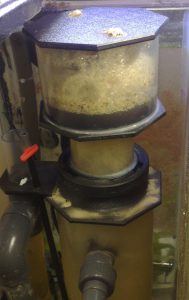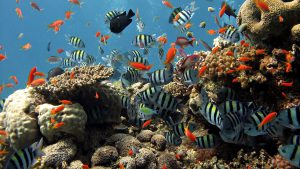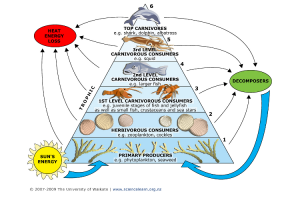In this article we try to give this term a definition, since it is sometimes misused and often causes misunderstandings between neophytes. I start saying that each aquarist has his own idea of what meets the definition or not, however I try to give a representation the more univocal and unifying I can.
Usually organic charge is seen as the ensemble of all waste substances dissolved in water and that should be eliminated, in order to maintain oligotrophy. This firs definition has a negative meaning and often we heard senteces like: reduce fish feeding so you reduce organic charge. Such a concept is not entirely incorrect but surely reductive and extremely misleading, however it provides a first elementary definition: organic charge is represented by all the substances which decomposition causes water pollution.

Let’s better analyze the key word “organic”: what concerns living beings, animals or plants, it contrasts to inorganic.
This second definition is sharply well-fitting and let us to include in the definition all the living species we host in our tanks, from algae to fishes, passing through bacteria and microfauna. This is a wider point of view: organic charge consists of all the animals and algae that establish deep interactions between themselves and their habitat, exchanging substances and energy.

Now we have made a bit of clarity, I want to recall a concept that should be already known by most: when we talk about increasing or decreasing organic charge, we are talking about varying tank’s internal dynamics, so we must pay the maximum attention and keep in mind any possible consequence of what we are doing. The simple addition of a new fish inevitably bring a decompensation, we must be able to evaluate if the system will react and adapt itself to the new condition. About this I suggest to read the articles dedicated to homeostasis and oligotrophy which represent the natural consequence of what just expressed above.
Finally I suggest another food for thought. We said that organic matter contrasts inorganic matter, however this contrast is only of semantic nature: quoting Lavoisier “everything transforms”, organic matter is decomposed to inorganic and inorganic is in turn fixed to become organic.

